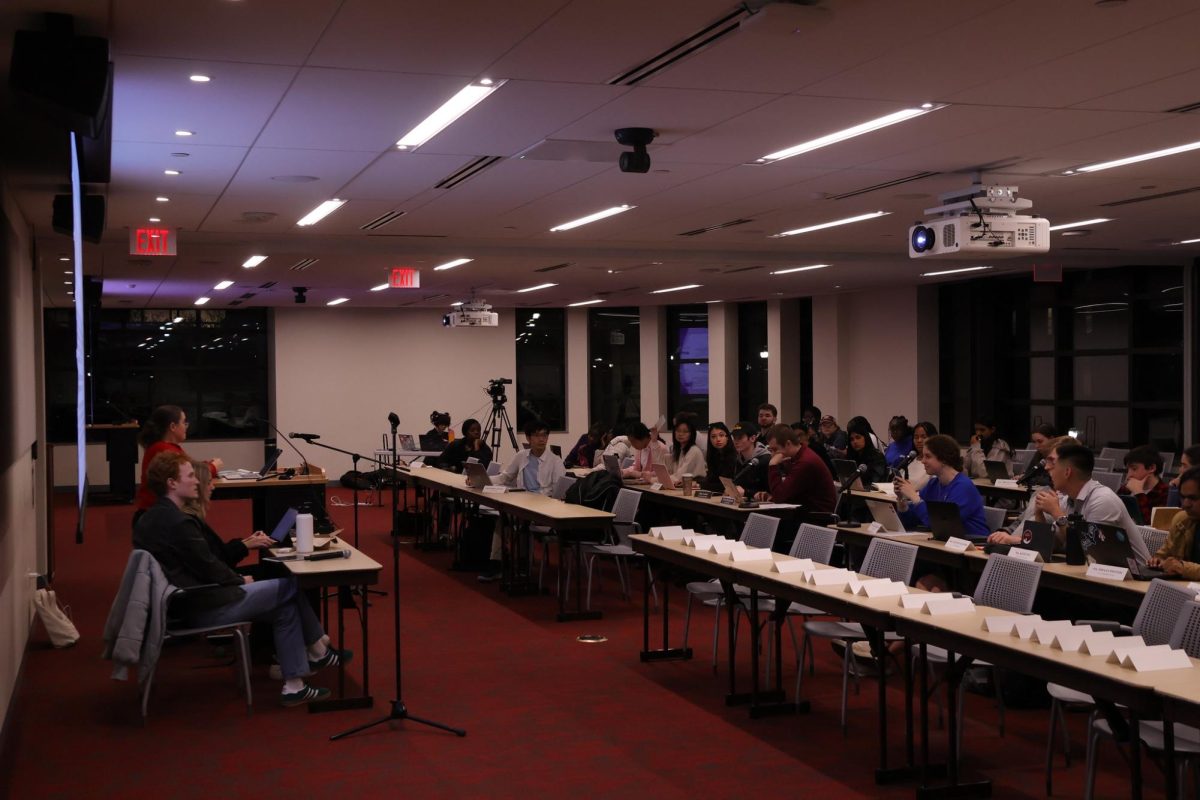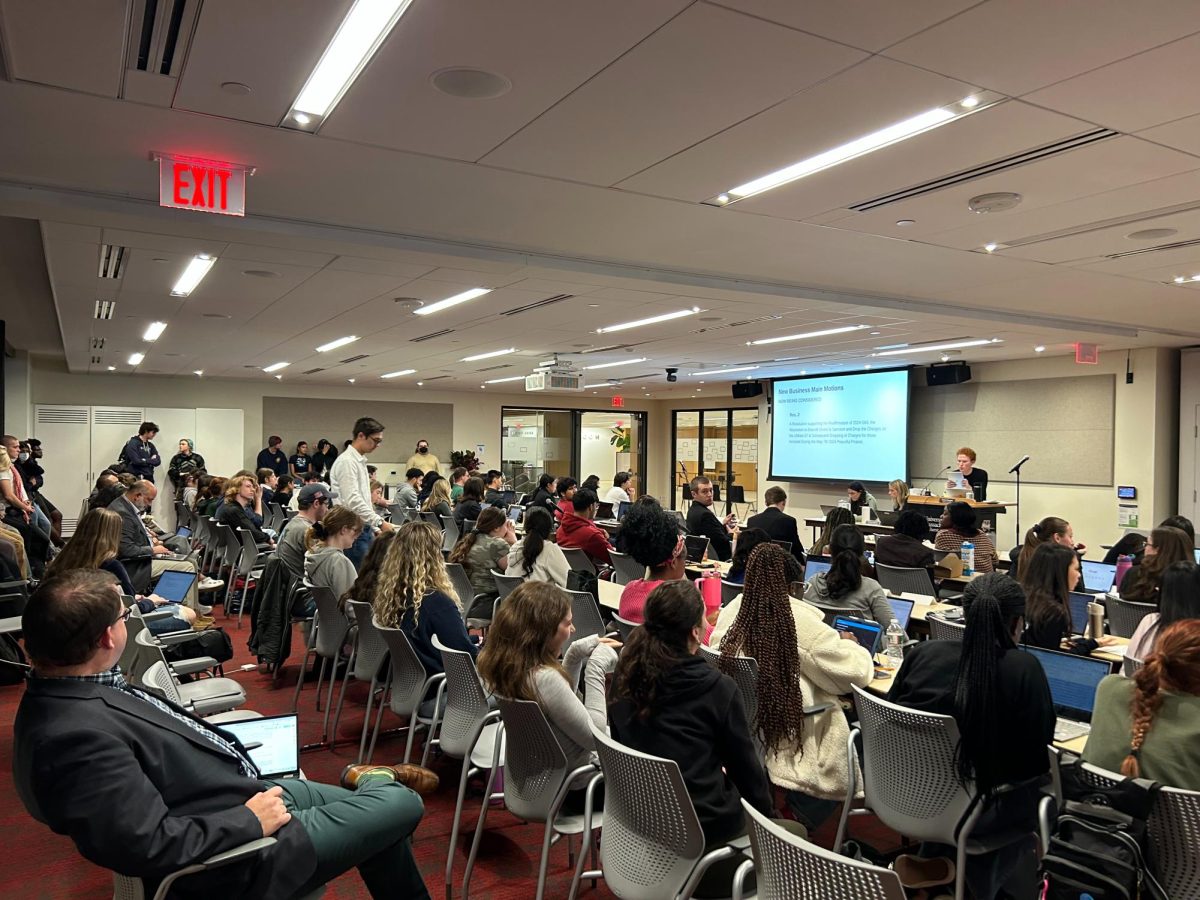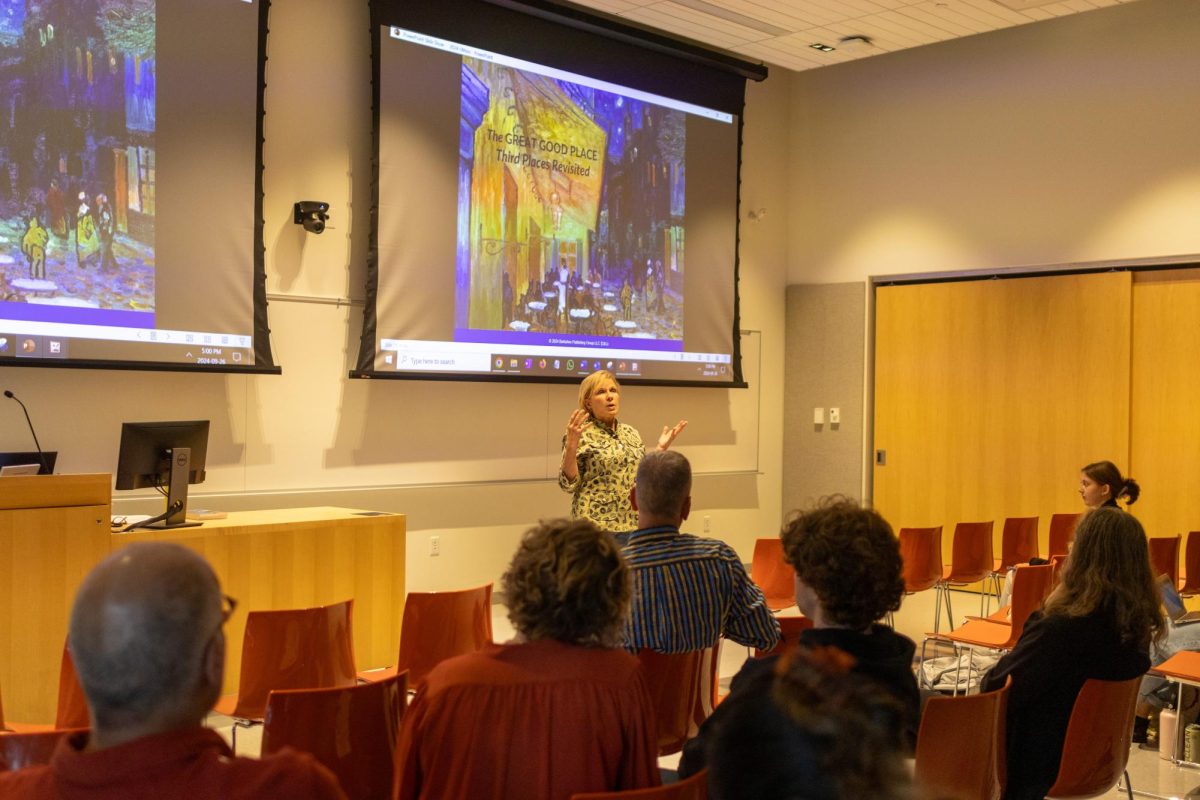
The Center for Women and Community (CWC) at the University of Massachusetts and the UMass chapter of Sigma Psi Zeta hosted a workshop called “Breaking Down Rape Culture” Wednesday night. The two hour workshop discussed what rape culture means, the impacts it has on victims, perpetrators and society as a whole and what steps average people can take to combat it.
The workshop, which was led by members of the CWC, was an open discussion. All participants were invited to share their thoughts and join the conversation.
The event began with a dialogue about what exactly rape culture was. To many participants, rape culture included victim-blaming, “slut-shaming” and telling women how to prevent rape rather than teaching men not to rape.
Many people said that rape victims are often asked what they were wearing, whether they were under the influence or whether they were alone when they were assaulted. For others, rape culture meant that as a society, we are permissive towards sexual violence and do little to prevent it.
As part of the discussion on what constitutes sexual assault and rape culture, participants in the workshop were asked what they believed the definition of consent was, as well as what constituted sexual activities that required consent. Many of the participants at the workshop described the importance of giving permission – no meaning no – that consent can be withdrawn at any time and that being in a relationship does not automatically mean consent has been giving. According to many participants, a wide variety of activities required consent.
Much of the workshop focused on stereotypes of female rape victims, male rape victims and rapists, as well as what these stereotypes mean for both survivors and perpetrators. According to workshop participants, we as a society often stereotype female sexual assault victims as particularly promiscuous women or minorities, male sexual assault victims as prisoners, gay and trans men, or feminine men and rapists as pedophiles, drug addicts or alcoholics, or strangers jumping out of dark alleyways.

As part of the discussion, workshop leaders and participants explained how these stereotypes only represent a small fraction of rape cases. In reality, sexual assault is more likely to be perpetrated by someone the victim knows personally and possibly even a family member, they said.
The workshop explained the negative impacts that these stereotypes can have. Survivors who do not see themselves as a stereotypical rape victim may second guess whether or not what they experienced constituted sexual assault, or even deny what happened to them. They also may experience guilt and ask themselves questions about whether or not they “deserved” what happened to them.
People who perpetrated a sexual assault but do not fit the stereotypical definition of a rapist may question whether or not their actions constitute assault, and may continue to act inappropriately due to the assumption that they cannot be a rapist, said the workshop leaders.
When organizations meant to help survivors, as well as friends, family and peers of survivors buy into these stereotypes, survivors may not get the help they deserve, may face victim-blaming or shame and may feel that their stories won’t be believed. This can lead to rape and sexual assault never being reported.
Part of the workshop was dedicated to a discussion about why victim-blaming is so prevalent in our society. According to workshop leaders and participants, by stereotyping and blaming victims of sexual assault, we give ourselves the illusion that we are safe from it and that it can’t happen to us. We also are then able to deny that our friends and family, and possibly even ourselves, may be perpetrators of sexual violence.
The workshop ended by discussing what steps people can take to reduce rape culture and change our own thinking as well as the actions of others. Participants were asked to remember the “3 Ds”- Direct, Delegate, and Distract.
Direct means taking direct action when we see potential for sexual assault or hear someone make a comment that perpetuates rape culture. We can confront the perpetrator and explain why his or her actions are wrong.
Delegate involves reporting inappropriate actions to authorities such as police officers or Residential Staff on campus, allowing them to take control of the situation. Distract means to diffuse the situation by redirecting the attention of the people involved. This can be as simple as changing the topic when someone makes an inappropriate comment.
The workshop leaders hoped that participants would educate themselves about what rape culture is and be given the tools they need to recognize and take action in situations that perpetuate this way of thinking.
Junior Victoria Lee, fundraising chair of the Sigma Psi Zeta sorority, said that, “a lot of people aren’t aware” of rape culture, what it means and how they can help combat it. She explained that understanding what rape culture is and how it is perpetuated can even have an impact in actions we take in our day to day life, such as using derogatory words like “slut” in day-to-day conversation. Lee stressed the importance of educating people about these issues, saying that education “goes a long way.”
Rose Gottlieb can be reached at [email protected].



















Dr. Ed Cutting • Apr 4, 2014 at 12:29 pm
“‘No, no!’ said the Queen. ‘Sentence first — verdict afterwards.’”
N. • Apr 3, 2014 at 4:03 pm
And once again ZB demonstrates the method of sloganeering over nuanced thought when reality is not always so simple. Do you think people should have to take breathalyzer tests before sexual activity? Perhaps they should get the readouts notarized?
N. • Apr 3, 2014 at 4:01 pm
Unfortunately the idea of the ‘slut’ has mutated into another form in our most ‘enlightened’ feminist circles – a guy who sleeps around is all too likely to be labeled ‘sleazy’, a ‘womanizer’ or even the big R and not necessarily for any good reason. Meanwhile, especially the more ‘radical’ and ‘advanced’ branches of feminism are likely to teach such expanded and subjectivized notions of consent as retroactive consent, i.e., consent can be withdrawn after the consented-to act. This is tricky: he lied about health risk factors – a pretty good reason; she felt ‘slutty’ but couldn’t say so because it’s not feminist enough and needed someone else to blame – a totally BS reason…
It;s nice to think that we could all grow past the poisonous attitudes and practices around gender and sexuality that we’ve all been steeped in. On the other hand it’s ridiculous to think that new words and new rules are enough to do that. All too often they only lead to new and insidious forms of poison.
JB23 • Apr 3, 2014 at 2:21 pm
I agree if it’s a situation where one involved person is too drunk to speak/stand/verbally consent. A drunken lapse in judgement isn’t the same thing as having unconsentual sex.
Zac Bears • Apr 3, 2014 at 10:17 am
@JB23: Sobriety is an essential element of consent. Without it, consent is impossible.
JB23 • Apr 3, 2014 at 9:07 am
Also, is the guy in that picture serious with listing “sobriety” under consent?
JB23 • Apr 3, 2014 at 9:05 am
I’ve always thought we should raise our children to respect women AND to take precautions to avoid situations with increased risks of sexual assault. I’ve never understand the concept of simply “teaching men not to rape”. Men know not to rape, that’s not to say we can’t do more to educate young men, but it’s naive to think that there won’t alway be some scumbags who will unfortunately commit such acts (just as there will always be murderers).